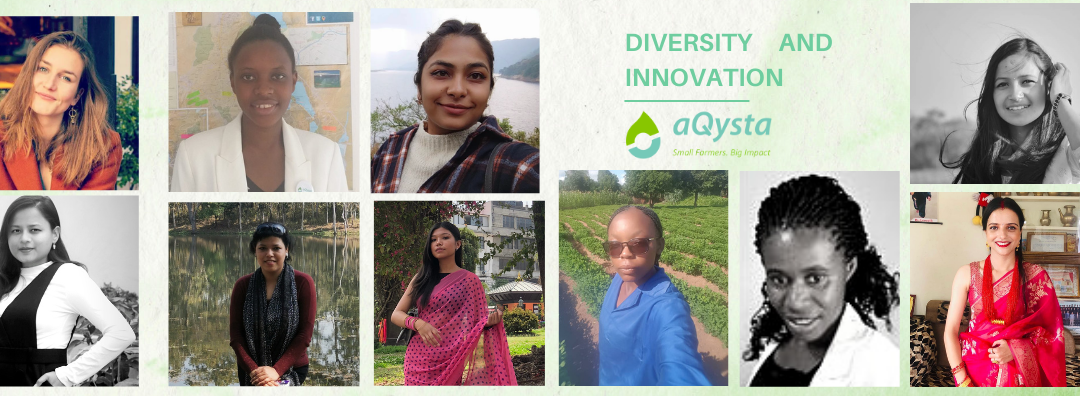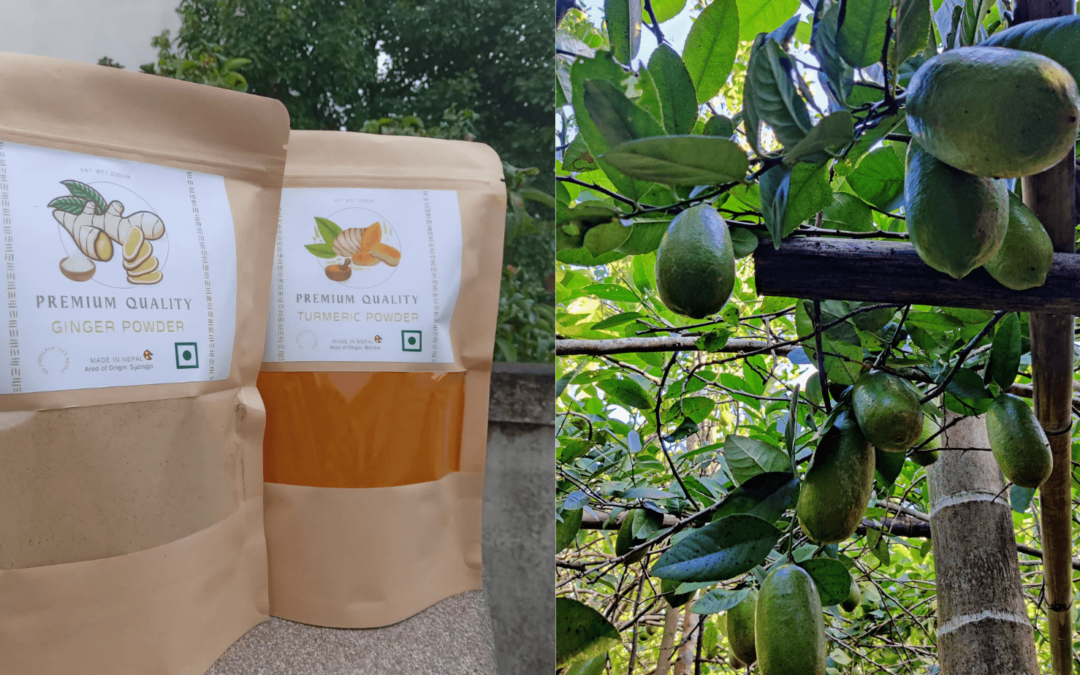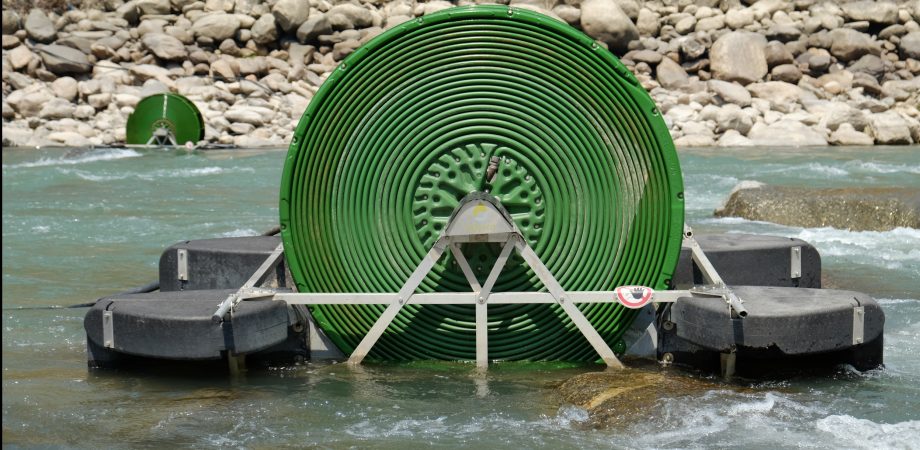
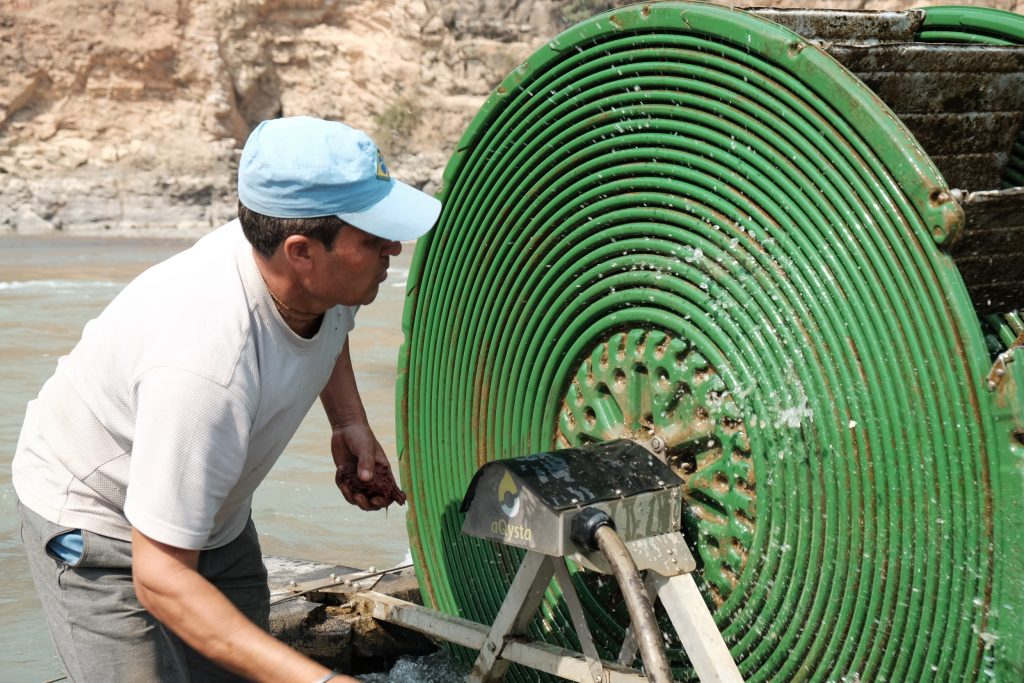

Ms. Sita Shrestha’s farm is where I ended up next. She was using the pump to water the peas and green onions and was also sharing the water from the pump with the household next to her. They were using the water specifically for vegetable farming. While they produce enough to sell if they want to, they don’t consider farming as a first-degree source of income. “Nope, we haven’t sold our produced till date and we wish we don’t have to see that day. If we have abundant, we would rather share or give it for free instead”.
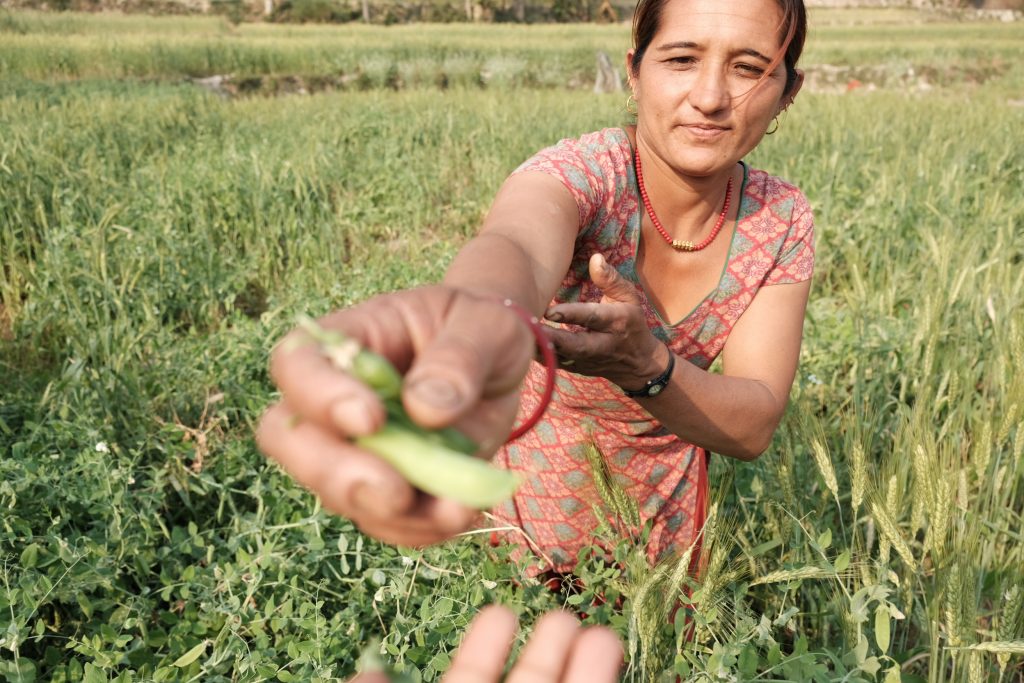
The next farmer I had a privilege talking to was Ms. Bhawani Puri, from whom I also learned that Barsha pump can help people in ways I couldn’t think of. “This house was constructed with the water lifted from your pump. And not only this but that and that and that one too”, she pointed out few more houses in the neighborhood. Awestruck? I was too!
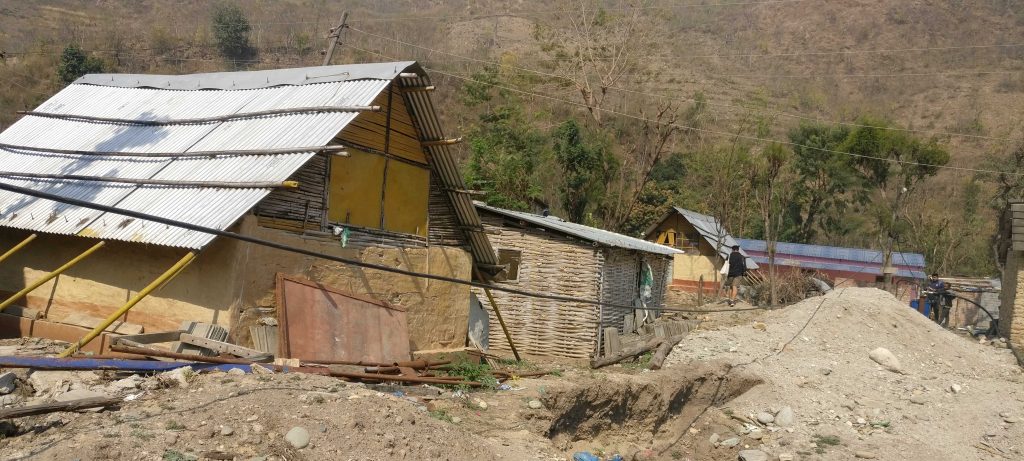
Long trip short, I interacted with around 16 farmers using Barsha pump and everyone had their own unique story, revolved around one major thing – the need for water. Not only for agriculture but for daily household purposes and many other activities. The thing farmers liked the most about the Barsha pump was ‘free, continuous water supply’.
While the need is abundantly clear, the willingness to invest in technologies for getting water is not as clear. “Are you facing a problem? Yes. Would you love to have the problem solved? Yes. Would you also invest in it? No. Why? Because that’s what government is for. Nepal is an agricultural country. The government must bring the solution to help us, farmers. This is the most common line of thinking that I observed.

I am Alisha Chhetri, Marketing & Communications officer at aQysta.
